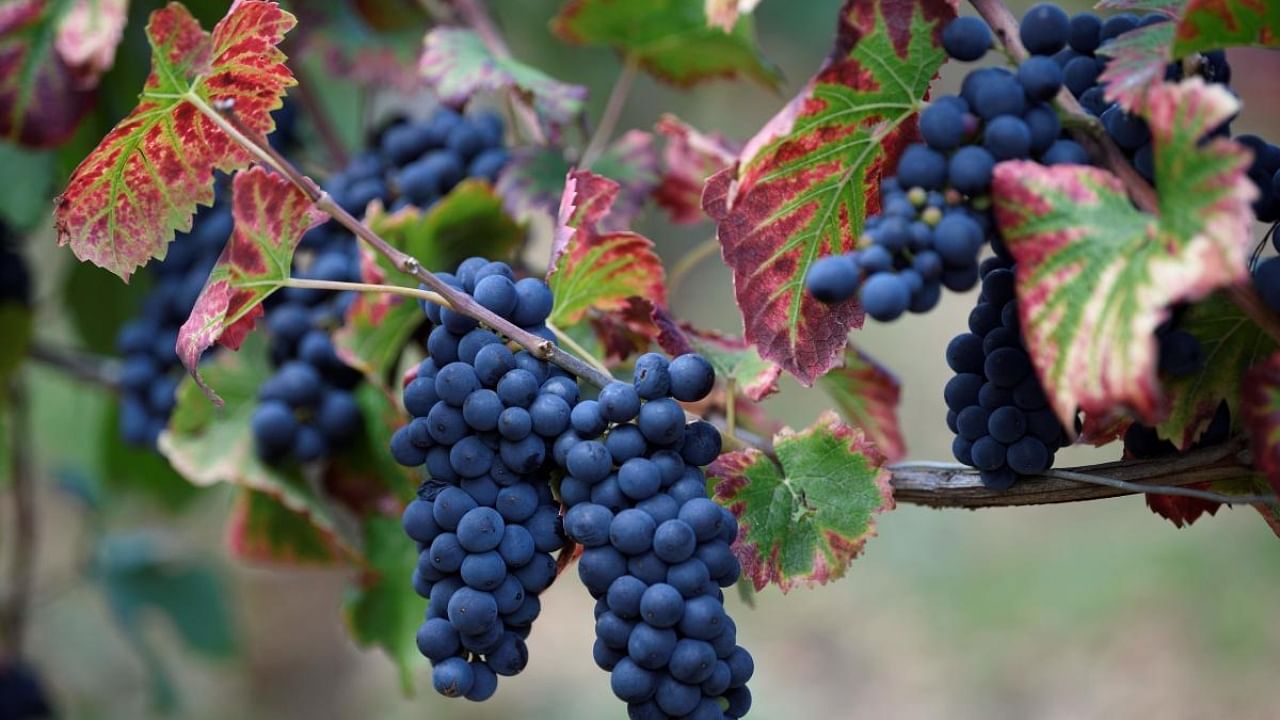
Three new varieties of grapes that can withstand adverse weather and promise more yield have been developed by researchers, a development that will come as a boost to farmers eyeing more income.
The University of Horticultural Sciences (UHS), Bagalkot, and ICAR-National Research Centre for Grapes based in Pune, Maharashtra, are behind the new varieties 'Manjira Kishmish', 'Manjira Midika' and 'Manjira Shama'.
Four others, part of the 23 varieties of grapes currently in development, are in the final stages of testing and could soon be introduced in the fields, according to Sateesh Pattepur, Assistant Professor of Fruit Science, UHS.
Pattepur said the varieties would be resistant to sudden changes in climate, minimise use of chemicals and also have a higher shelf life.
Farmers in Maharashtra were first off the blocks and started experimenting with the new varieties last year, while growers in Karnataka didn't take it up early as they were wary of the results.
Manjira Kishmish can replace the most popular ‘Thompson seedless’, as the former has a higher level of sweetness, better colour and even berry growth that is suited for both preparations of raisin and tabletop fruit.
Sanjeev Nandrekar, a Bagalkot-based grape grower who has grafted Kishmish varieties on his two acres of land, said many grape growers in Maharashtra have started reaping the benefits.
“Scientists claim that the new varieties yield higher quantity and better quality of grapes in less time than the tried and tested Thompson seedless,” he said.
Karnataka is the second largest producer of grapes after Maharashtra and has nearly 29,197 hectares of land under cultivation and produces 7.10 lakh tonnes of grapes annually. Bangalore Blue, Thompson seedless, Anab-E-Shahi Dilkush and Tas-A-Ganesh are some popular varieties grown in the state.
ICAR-NRC has been conducting research on grapes to shield farmers from being impacted by nature's vagaries. However, a reduction in the allocation of funds for research by both state and central governments has hamstrung the effort.
Over the last four years, the allocation of funds for research has reduced from Rs 5 crore annually to Rs 3 crore. This has resulted in scientists being unable to conduct large-scale field trials of the 23 varieties and release them nationally.
University Vice Chancellor Indiresh K M flagged the lack of funds. “Karnataka Grapes and Wine Board was supposed to allocate additional funds for conducting research on wine grapes. However, so far we have not received any funds,” he said.
Former Director of ICAR-NRC for Grapes R G Somkuwar said each variety requires at least seven years of study before they are introduced in the field.